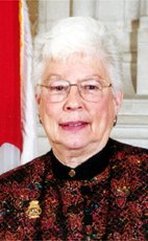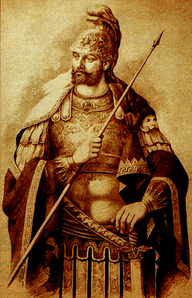
The Fall of Constantinople
For the last two centuries of its
existence the Byzantine Empire had
been a shadow of its former glory.
Territorial losses had left just the
imperial city and the Peloponnese.
With a vigorous Ottoman Empire
completely surrounding it and the
city relying heavily on foreign
merchants for its defence, the empire
was in dire straights. Still,
Constantinople was a tough nut to
crack even when undermanned. However, in 1451 the 19-year-
old Mehmed II became the Ottoman Sultan. He decided he
wanted to conquer the city perhaps due to brashness of youth,
perhaps wanting to secure his reign with a grand
accomplishment, or perhaps realizing further conquests in
Europe would be difficult with the Byzantines to their rear.
Constantine XI Palaiologos was no fool; he began preparing
his defences.
In the winter of 1452 the siege began. The Byzantines had
7000 soldiers. The Ottomans had 50,000-80,000 soldiers. As
was customary Sultan Mehmed II offered to spare the
Emperor's life and allow him to continue ruling from Mistra if
Constantine XI would surrender the city. He sent the
following refusal:
"To surrender the city to you is beyond my authority or
anyone else's who lives in it, for all of us, after taking the
mutual decision, shall die out of free will without sparing our
lives."
The Emperor took an active part in the city's defence and
helped keep the necessary unity of his army of Genoese,
Venetian & Greek soldiers.
On May 29th, 1453 the city walls were breached. The
Emperor's last recorded words were: "The city is fallen and I
am still alive." He then threw off the ornaments of imperial
office and led his soldiers in a last charge against the
Ottomans.
The end of Constantine XI's reign is tragic as it was the end of
the last vestige of the ancient world. For nearly a thousand
years Byzantium had been a buffer protecting Europe from
invasion. It is also tragic in that Constantine XI Palaiologos is
generally regarded to have been a capable emperor who made
due with what little resources he had. Sometimes, being a
good ruler is just not enough in the face of impossible odds
and that is perhaps the most tragic thing.

A Family Tragedy
King Birendra Bir Bikram Shah of Nepal
came to the throne in January of 1972.
Described as kind and emotional as a
prince. At his coronation the new king
proposed the idea of Nepal being a 'Zone of
Peace' and the acceptance of peace being
the most important aspect of progress. The
king genuinely wanted the people to experience real
democracy and as such he held the 1980 Referendum which
asked the people to choose between multi-party democracy or
a reformed panchayat system. The referendum was won by
the supporters of the panchayat system. Regardless, the vote
was close and restrictions on political activities were loosened.
In response to the the 1990 People's Movement, which
demanded greater political freedom, King Birendra agreed to
give up absolute power and become a constitutional monarch
rather than fight to retain absolute rule.
It looked like King Birendra would successfully shepherd his
people through the transition to democracy (a transition few republics make successfully) and his dynasty would continue
to preside over the small Himalayan kingdom. However, on
June 1st, 2001 Prince Dipendra killed most of the royal family
and then shot himself.
In the aftermath of the massacre Gyanendra Bir Bikram Shah
Dev became king. Unlike King Birendra, King Gyanendra was
not popular. Worst still, he was widely rumoured of being
involved in the murders due to his absence at the time of the
killings. While eye-witnesses confirmed that it was Prince
Dipendra that had done the shooting it is likely the rumour
did its damage. It is probable that the experienced and
popular King Birendra could have better handled the crises
that gripped Nepal in the 2000s. Nepal today is gripped by
the instability following the overthrow of King Gyanendra and
the declaration of a republic. It appears the groundwork for a
peaceful transfer to democracy that King Birendra laid will go
to waste.
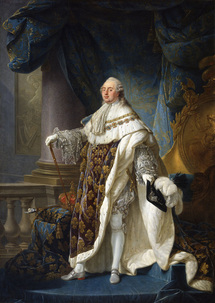
Victim of Republicanism
King Louis XVI succeeded to the
French throne in 1774. He faced a
mounting debt crisis and
unpopularity stemming from his
marriage to Marie Antoinette and a
populous grumbling for tax relief.
Among his initiatives as king was
the Edict of Tolerance which
granted non-Catholics civil and
legal rights in France. Doing so
eased religious tensions and
officially ended religious persecution in his realm. Louis XVI's
efforts to reform the tax system were blocked by the nobles.
Other financial tricks were equally unsuccessful and facing
mounting difficulties Louis XVI decided he had no choice but
to convene the Estates-General in 1789.
Things immediately got out of control. Rather than debating
the kingdom's financial situation the Estates-General debated
over its structure and composition. The Third Estate
eventually separated and formed the National Assembly.
Louis XVI was now stuck in a precarious position. Power had
bled from him to the National Assembly which continued to
become ever more radical. By 1791 he was essentially a
prisoner not even allowed to choose his own clergyman. The
king made the fateful decision to flee with his family.
Unsuccessful, he was hauled back to Paris even more a
prisoner. His attempted flight, vague threats of foreign
invasion, and conspiracy theories connecting the two led to
further radicalization of the National Assembly. On January
21st, 1793 King Louis XVI was beheaded by guillotine as was
Queen Marie Antoinette later that year. Their son, and heir,
Louis-Charles would die in prison at the age of 10.
The murder of King Louis XVI would signal the beginning of a
bloodletting never before seen in France. The tragedy of King
Louis XVI was that of a man who wanted to do good but
simply lacked the ability.
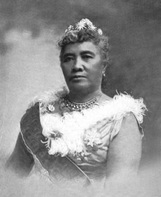
Overthrown by Businessmen
Liliʻuokalani was born on September
2nd, 1838 to High Chief Caesar Kaluaiku
Kapaʻakea and High Chiefess Analea
Keohokālole. She belonged to the second
dynasty to rule the Kingdom of Hawaii
and succeeded her brother King
Kalākaua in 1891. Even before her reign had begun there were
signs of future trouble. King Kalākaua had been forced to sign
the 'Bayonet Constitution' in 1887 under threat of force. The
constitution had three main effects; it limited the monarch's
prerogatives, it disenfranchised many native Hawaiians, and
it greatly empowered the American and European
businessmen of the 'Missionary Party'.
Upon becoming Queen, Liliʻuokalani began to receive
petitions from her people to restore their rights. To do so she
sought to replace the Bayonet Constitution. The new
constitution would not end up being drafted as the effort to
replace the Bayonet Constitution provoked a response from
the American and European businessmen and residents of the
islands. On January 14, 1893, a group composed of Americans
and Europeans calling themselves the 'Committee of Safety'
deposed the Queen with assistance from US Marines. They
then sought to be annexed by the United States.
The Government of President Grover Cleveland considered
the act illegal and sought to restore Queen Liliʻuokalani to her
throne. However, an uncooperative Congress and the
Committee of Safety formation of an independent republic
thwarted his efforts. The new republic would be admitted as a
protectorate of the United States.
Despite multiple efforts including lawsuits, personal pleas to
successive American administrations, and a counter-
revolution in 1895 the monarchy was not restored. Under
republican governance the Hawaiian language and other
aspects of Hawaiian culture would be suppressed. Today only
0.1% of the population are native speakers of the Hawaiian
language. The Missionary Party would eventually form the
Hawaiian Republican Party and rule the islands uninterupted
until the 1950s.
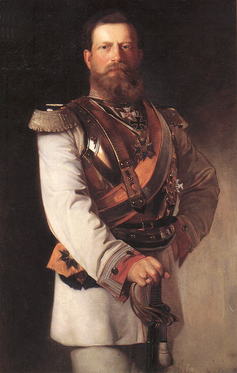
What Might Have Been
Emperor Frederick III of
Germany is a study in contrasts;
he was brought up in the midst
of Prussian militarism but was
also a committed liberal, the
hopes of many progressives in
the empire rested with him but
is all but forgotten by them
today, and he had all the passion
in the world to fulfill his duty
but none of the time. The last
point is the one that makes
Frederick III's reign tragic.
Frederick succeeded his
father as emperor in 1888. His father had lived to be 90 and
by the time he wore the crown he had already been diagnosed
with cancer of the larynx. He would reign all of 99 days.
Throughout his life Frederick III has espoused liberal views.
He hated war and believed the state should not act against the
wishes of the people. He also greatly admired Britain's
parliamentary system and wished to curb the power of the
chancellor once he was emperor. His views did not make him
popular with his father nor was he popular with Chancellor
Otto von Bismarck after denouncing him at an official
reception in the city of Danzig for restrictions on freedom of
the press.
However, his short reign meant little lasting reform was
possible. One of his few successes was to force Robert von
Puttkamer to resign as Prussian Minister of the Interior after
it was found he had interfered with a Reichstag election.
Chancellor Bismarck had attempted to undermine Frederick
III during his reign. He felt Frederick III's son Wilhelm II
would support him. But, while Wilhelm II had none of his
father's liberal tendencies he too felt the chancellorship had
become too strong and dismissed Bismarck from service. The
slow unraveling of Bismarck's policies would eventually lead
to the ruination of the German Empire and still later the
ruination of Europe.
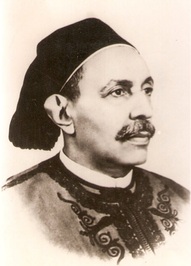
Replaced by a Madman
Like many Arab monarchs Idris I of
Libya arose as a leader in the breakup
of the Ottoman Empire. Idris I spent
much of the inter-war period
advocating for independence for
Libya from Italian rule. By 1922 he
had been recognized as Emir of
Cyrenaica and offered the position of
Emir of Tripolitania. However, a
revolt broke out against Italian authorities in 1928. Idris I was
forced to flee to British-controlled Egypt. He sided with the
British in World War Two and was rewarded afterwards with
the Emirate of Cyrenaica. He was again invited to become
Emir of Tripolitania which he accepted. With the eventual
aquisition of Fezzan he united the three areas of modern
Libya.
A constitution was adopted in October of 1951. It instituted a
wide range of democratic and civil rights for the Libyan
people. However, the kingdom was poor and local sensitivities
(then as now) had to be taken into account or the risk of civil
strife would be very real. King Idris tried unsuccessfully to
turn the monarchy into a symbol of shared unity.
In 1955 oil was discovered under Libya's barren deserts but
like many other countries in the region the discovery was a
mixed blessing. The oil put the country's finances in order but
it did nothing to grow the middle class. Wealth became
concentrated in the hands of a wealthy few which created
resentment. However, it would not be a popular uprising that
ended the monarchy. The kingdom had its problems but it
was reasonably free. Instead, the end of the monarchy would
result from a plot by some army officers inspired by Gamal
Abdel Nasser of Egypt. Nasser was a proponent of Arab
socialism which blended opposition to imperialism and the
ruling classes with nationalism.
The coup was launched on September 1st, 1969 while the king
was out of the country for medical treatment and was almost
bloodless. The people, especially the youth, initially welcomed
the coup. Perhaps it was this lack of support that convinced
the king not to fight for his throne. It would have been very
easy to tear at the ethnic divisions in the country to try and
regain his power. However, the King had spent much of his
life trying to unite the people and it is not likely he considered
dividing his people in the twilight of his life. Meanwhile a
twelve-member directorate was established in Libya which
replaced the National Assembly. Colonel Gaddafi rose to
prominence within the directorate and suspended the
constitution initiating 40 years of personal, and increasingly
erratic, dictatorship. And when his government was at its end
he would make the choice the old king had refused to make
and initiate a bloody civil war to keep his position.
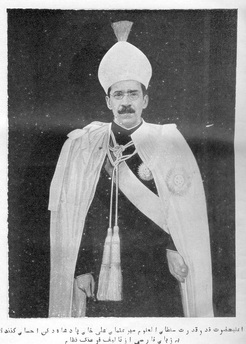
Independence Denied
Asaf Jah VII became the Nizam
of Hyderabad in 1911. As the
ruler of the single largest, and
wealthiest, princely state of
British India his domain was a
crown jewel of the British
Empire (somewhat literally
given the state's wealth in
diamond mining). He was
recognized as the world's
richest person during his
lifetime and had ten palaces in
Hyderabad that demonstrated
this wealth. However, he, like his predecessors, was also a
prolific builder of public works projects including hospitals,
irrigation networks, court buildings, assembly houses,
schools, and a university. Asaf Jah VII spent about 10% of the
state's annual revenue on education alone.
While Asaf Jah VII was a Muslim about 86% of Hyderabad's
population were Hindu. Despite this Hyderabad had managed
to largely avoid the violence that sometimes racked the multi-ethnic empire. The plan to partition India into separate
Muslim and Hindu states created a problem: either option
would likely lead to severe upheaval and possible loss of life.
Asaf Jah VII took the third option and maneuvered to become
an independent state (as allowed for under the partition
plan). Hyderabad had managed to keep a high degree of
independence during the British administration and a return
to independence would not be too difficult to achieve.
However, in the waning years of British rule in India forces
largely beyond the Nizam's control would shatter any chance
of peace.
While the Nizam spent a great deal on public works 40% of its
land was owned by the Muslim minority who had a tendency
to be oppressive towards the peasantry (to be fair the Hindu
landlords were equally oppressive towards the peasants). The
result was a communist insurgency starting in 1946 to bring
about land reform. At about the same time Qasim Razvi,
inspired by the cause of Muslim nationalism, formed his own
independent militia called the Razakars in support of Asaf Jah
VII's opposition to Hyderabad being integrated into India.
The Razakars did not fully support the Nizam's independence
policy and were not opposed to joining Pakistan. The Nizam
did not oppose the militia's creation due to violence that had
been breaking out across India between Muslims and Hindus
ahead of the partition. As communist successes mounted the
two groups came into inevitable conflict. Both sides targeted
civilians but it was the actions of the Razakars that proved
most disastrous for the rule of the Nizam. Their targeting of
Hindu civilians gave Hindu-majority India the pretext for an
invasion. In the worsening situation supporters of the
Razakars came to dominate the government while the Nizam
became, in his own words, "completely helpless". India for its
part decided that it could not allow a potentially hostile
country to remain within the Indian interior.
India launched its invasion (which it termed a 'police action')
on September 13th of 1948. Attacking from all sides with
superior numbers the Indian Army quickly defeated the
Hyderabad Army and the Razakars. The Nizam was forced to
hand his country over to India. During the Razakars' reign of
terror it is estimated that between 3000 to 5000 people were
killed. With the change in fortunes of Hyderabad's Hindus a
campaign of revenge was undertaken. Government estimates
(which were not released until 2013) place the number of
murdered Muslims between 27,000 and 40,000. Other
scholars have suggested figures as high as 200,000. In the
end the bloodletting of Hyderabad would be shared by people
on both sides of the partition line but for just a moment there
was perhaps a chance that Hyderabad could have escaped that
fate.
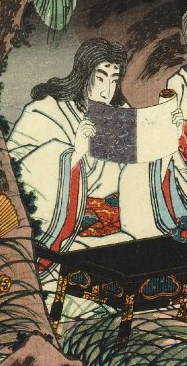
Loyalty Unrewarded
Also known as Moriyoshi, Prince
Morinaga was the son of Emperor Go-
Daigo of Japan. Born in 1308 his fate
would be decided both by his father's
ambition and his foolishness. His
father, like most emperors of Japan,
was kept powerless by his nominal
servant, the shogun. Emperor Go-
Daigo was not content with this and
launched a number of operations to
restore imperial power (it is hard to
call these coups when it is the
Emperor doing it).
At the age of 18, Emperor Go-Daigo had Prince Morinaga
named the head abbot of the Enryakuji temple on Mount Hiei.
The temple housed a sect of Buddhist warrior monks near the
capital of Kyoto. This was good strategic planning in advance
of any sort of power play.
In 1331 the Emperor failed at his first (open) attempt to take
power. The prince was forced to flee Enryakuji. He met up
with the loyalist General Kusunoki Masashige in Kii province.
Together the two put up a tenacious defence of the fortress of
Akasaka before being forced to withdraw. Masashige went to
defend Chihaya Fortress while Morinaga rallied troops. The
success of both efforts led to the seige of Kamakura in May of
1333 ending the shogunate for a time.
Restored to power, Emperor Go-Daigo wanted to make sure
the country did not revert to military rule again. However, he
underestimated the need to reward the warriors that had
served him. He refused to appoint General Ashikaga Takauji
as shogun and made the mistake of appointing his sons
Morinaga and Norinaga to the position. The position of
shogun had become de facto hereditary and it is possible Go-
Daigo was setting up a situation where the heir to the throne
would occupy the position of shogun until they succeeded to
the imperial throne. While this made sense if one wants to
ensure civilian rule and ensure the emperor had loyal support,
it offended the warrior class to have a civilian in the position.
He also leveled new taxes on the samurai class, further
estranging the emperor from needed supporters. Too late
Emperor Go-Daigo realized his mistake.
Takauji made false charges that Morinaga was planning to
overthrow his father, and forced the Emperor to hand him
over. The warrior class largely did not support the Emperor by
this point and he was unable to protect his son. Prince
Morinaga was taken to a cave near Kamakura. Morinaga's
prestige and commitment to civilian rule made him a
dangerous symbol. With resistance forming among the other
clans against Takauji keeping the prince alive became a
liability. On July 23rd, 1335 Morinaga was executed. He had
done everything right. He had obeyed his fathers wishes,
fought bravely, restored civilian rule, and he still ended up
dying in a dank hole. In a last act of defiance it is said the
prince leaped at the executioner's blade with his mouth, biting
it in half.
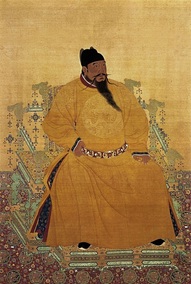
Last Patron of Exploration
Unlike other monarchs on this list an
argument can't really be made that
Zhu Di of China, The Yongle
Emperor, was a good man. He came
to power through armed rebellion,
was notably cruel, and established a
despotic style of government.
That said he also initiated economic,
educational, and military reforms
that benefited the Chinese people. Some have seen his life as
an attempt to gain power, prestige, and glory. Perhaps this is
why he appointed Zheng He as admiral of a great exploration
fleet. This fleet would travel as far as the coast of modern-day
Somolia. There is evidence that Zheng He heard about Europe
during his voyages and some speculation that his voyages may
have taken him even further West.
In August 12th, 1424 The Yongle Emperor died and the
tragedy began. Throughout his reign the Emperor had
supported the street-wise eunuchs over the book-wise
scholars. Both had their faults. The eunuchs were often
capable but also notoriously corrupt. The scholars were well-
educated graduates of the imperial exam system but tended to
be exceedingly reactionary. With the Emperor's death
eunuchs such as Zheng He lost power under his successors.
The great exploration voyages ceased, the navy was neglected,
innovation became frowned upon, and China turned inwards.
What is perhaps most sad is that there is probably very little
the Emperor could have done to stop this development.
Regardless, the end of this reign marked the beginning of
China's long slumber.
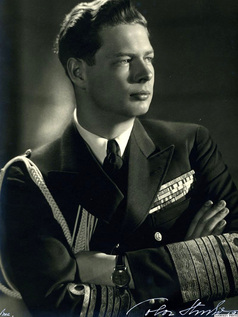
Victim of Communism
Michael I became King of
Romania on July 20th, 1927 at
the age of 6. The interbellum
period was unsettled for most of
Europe and Romania was no
exception. Coming to the throne
as a child necessitated a regency
which included Prince Nicolae
(his uncle), Patriarch Miron
Cristea, and Chief Justice
Gheorghe Buzdugan. His father
Carol had 'temporarily' renounced his rights to the throne in
1925 but was invited back by politicians dissatisfied with the
regency in 1930. The Romanian Parliament proclaimed him
King Carol II. With the growing popularity of the fascist Iron
Guard, Carol II sought first to create his own personality cult
and finally in 1938 to rule as an absolute monarch to thwart
them.
In September of 1940 Prime Minister Marshal Ion Antonescu
staged a coup d'état against the king. Antonescu suspended
the Constitution, dissolved the Parliament, and re-installed
the 18-year-old Michael as king. While in theory King Michael
I had control of the army and the right to appoint the prime
minister, in practice he was a figurehead. Prime Minister
Marshal Ion Antonescu was an admirer of Hitler's Germany
and brought Romania into World War II on Hitler's side.
This lasted until 1944 when King Michael I launched his own
coup against Ion Antonescu. Antonescu's government was
deposed and the king sought to join the Allies. The King paid
a price for success in that to do so he had allied with the
communists. Despite any misgivings he may have had his
advisers convinced him it was the only viable option.
However, it would be March of 1945 before political pressure
(internal and external) forced him to appoint a communist
prime minister. Between August of 1945 and January of 1946,
during what has become known as the "royal strike" the king
refused to give royal assent to laws passed by the communist
government. Under pressure from the Americans, British, and
Soviets he was eventually forced to stop blocking communist
legislation or calling for their government's resignation.
Early on the morning of December 30th, 1947 the king was
summoned by communist Prime Minister Petru Groza.
Arriving at Elisabeta Palace in Bucharest he found it
surrounded by troops loyal to the communists. Unable to call
in troops loyal to him he was threatened by Groza at
gunpoint. Additionally, Groza stated that unless the king
signed an abdication letter immediately he would be obliged
to kill 1000 students in custody. Faced with no way out and
innocent lives on the line the king relented and went into his
long exile. The monarchy was abolished, a people's republic
declared. It is estimated that somewhere between 10-100
thousand died under the communist regime.
A Kisaragi Colour

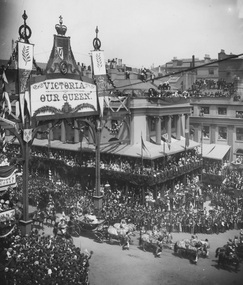
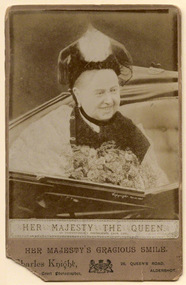
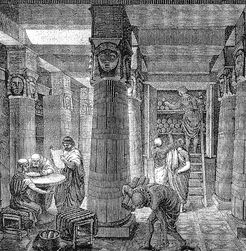

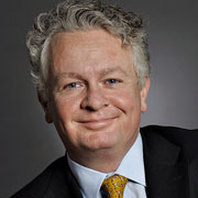
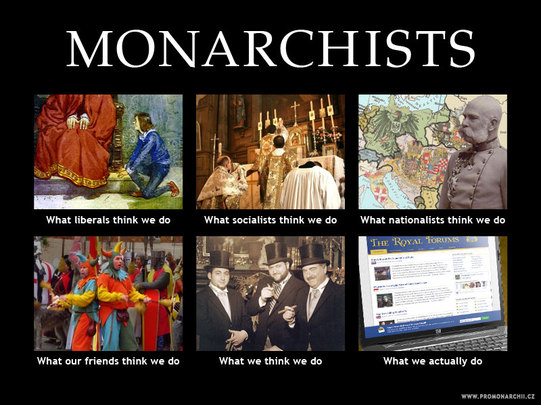

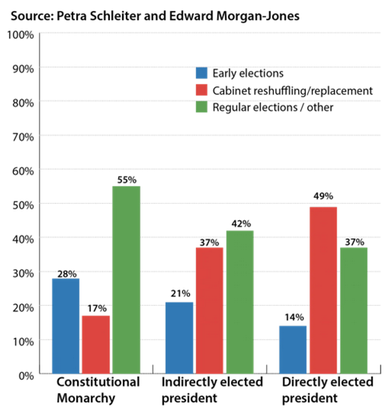


 RSS Feed
RSS Feed




